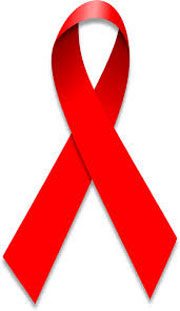
AIDS Journal publishes findings of two important studies in March 2013 Issue
The above story is reprinted from materials provided by Wolters Kluwer Health: Lippincott Williams & Wilkins, via Newswise
The results of two important studies have been published in the March issue of AIDS, the official journal of the International AIDS Society. One study notes that screening for HIV should be performed more frequently — up to every three months for the highest-risk patients, while low-risk groups to be tested every three years. A second study demonstrates a link between heavy drinking and risky behaviors for men who have sex with men (MSM). AIDS is published by Lippincott Williams & Wilkins, a part of Wolters Kluwer Health.
See also:
Health & Medicine: HIV and AIDS, Infectious Diseases, STD, Sexual Health, Chronic Illness; Diseases and Conditions
Reference: HIV test, Transmission (medicine), Antiretroviral drug and Sexually transmitted disease
Northwestern University study researches the most cost-effective approach to HIV screening
The mathematical modeling study was performed to assess “optimal testing frequencies” for HIV screening in different risk groups. Current Centers for Disease Control and Prevention (CDC) guidelines recommend annual testing for high-risk groups, such as people with HIV-positive partners, people with multiple partners, injection drug users, and sex workers and once-in-a-lifetime testing for low-risk groups (whose annual risk of acquiring HIV is only one-hundredth of one percent).
The researchers modeled various scenarios in an attempt to “optimize the tradeoff” between the societal costs of testing versus the benefits of earlier HIV diagnosis over a patient’s lifetime. Frequent testing is shown to be an effective method for identifying new HIV infections. In the past, people with new HIV infections weren’t treated until they had significant declines in immune functioning, as measured by the CD4 cell count. But there’s a growing consensus that antiretroviral treatment is beneficial for all HIV-infected patients, regardless of CD4 count. Starting treatment immediately after diagnosis also reduces the risk of transmitting HIV.
Within its limitations, the study suggests that current recommendations for HIV testing are “too conservative, especially for low risk groups who would benefit from more frequent testing,” according to Lucas and Armbruster. They conclude, “These results should encourage policymakers and medical professionals to reconsider how often adolescents and adults should be tested for HIV.”
The full article is available on the AIDS journal homepage (http://www.aidsonline.com/) and in the March 13 print and online edition.
University of North Carolina study reveals heavy drinking affects HIV risk for MSM
Researchers analyzed long-term follow-up data on MSM from a large study of HIV risk factors. All men were HIV-negative at the beginning of the study. Using special statistical weighting techniques, Dr Cole and colleagues analyzed the joint effects of alcohol consumption and sexual behavior on the risk of acquiring HIV (seroconversion) during follow-up. Findings show that for men who have sex with men (MSM), heavy drinking may lead to an increased risk of acquiring HIV.
Overall, 529 cases of HIV seroconversion were identified during follow-up. Thirty percent of the men reported having unprotected sex with multiple partners in the two years before the study.
Risk is especially high for men who are heavy drinkers and have multiple partners, suggests the study by Stephen R. Cole, PhD, of University of North Carolina, Chapel Hill, and colleagues. They write, “These findings suggest that alcohol interventions to reduce heavy drinking among MSM should be integrated into existing HIV prevention activities.”
The full article can be read by visiting the AIDS journal homepage (http://www.aidsonline.com/).
